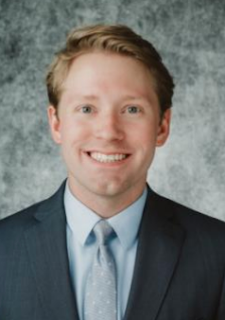From the January 21, 2022 issue of the Transformational Times (Urban and Community Health)
The Mission of the SCU: The Saturday Clinic for the Uninsured
Thomas Ritter, MD
Dr. Ritter wrote this essay when he was a fourth-year medical student at MCW.
The highlight of my medical school experience has undoubtedly been working at the Saturday Clinic for the Uninsured (SCU). SCU is a student-run free clinic for patients without health insurance that operates at the intersection of North and Humboldt on, you guessed it, Saturdays. In addition to a name that is quite “on the nose," SCU has been a staple of the Milwaukee community for over twenty years. Our mission is to provide comprehensive, patient-centered, and equitable care to Milwaukee’s uninsured population.
Goal One: Provide high quality care
Uninsured patients in Milwaukee face an array of challenges to access healthcare and we have shaped SCU to meet the needs of our community. We have grown to become a long-term home for our patients to receive healthcare by marshalling resources at MCW and Milwaukee hospitals to provide access to lab work, mammograms, and specialists including ophthalmology, dermatology, and rheumatology. We offer an in-house dispensary of medications at no cost to our patients and have established a partnership with Seton Pharmacy at Ascension Columbia St. Mary’s to provide any medication we don’t have for a low-cost rate. We evaluate and address the social determinants of health for all of our patients, including food insecurity, legal assistance, and housing instability.
Goal Two: Improve cultural humility and clinical competence
In addition to its mission to provide comprehensive, patient-centered, and equitable care, SCU also aims to enrich the cultural humility and clinical competencies of its student volunteers. This second mission has certainly been achieved in my personal and professional life. Early in medical school, I was an eager learner of anatomy, pharmacology, and pathophysiology. While I certainly remain interested in these subjects of medicine, my experience at SCU has revealed to me the broader picture of medicine—to identify and critically examine the ways in which our patients, insured or not, encounter obstacles to receiving care. Whether the obstacle lies outside of healthcare, such as access to affordable transportation, or is an internal obstacle, such as racism in medicine, truly comprehensive care requires intervention on both a personal and societal level.
SCU has taught me that providing patient-centered care requires grace to meet patients where they are, see the world through their eyes, and act accordingly. Providing equitable care necessitates intentional introspection and the evaluation of my own biases on a daily basis.
I believe SCU’s contribution to the Milwaukee community is difficult to truly measure. While direct patient care can be quantified by the number of patients seen or referrals sent, the impression SCU makes on its volunteers who go out and serve in their own way after graduating, although intangible, cannot be overlooked. I am becoming a family medicine physician because of my time at SCU, and I am only one of many volunteers in SCU’s long history who enter healthcare with a heart for service and dedication for justice. I am grateful to have worked at SCU and encourage all who are interested to volunteer there as well.
To learn more about the Saturday Clinic for the Uninsured, check out the website here.
Thomas Ritter, MD was a member of the MCW-Milwaukee Class of 2022. He followed his heart as is currently a resident in the MCW Family Medicine program at Columbia St. Mary's Hospital in Milwaukee.

